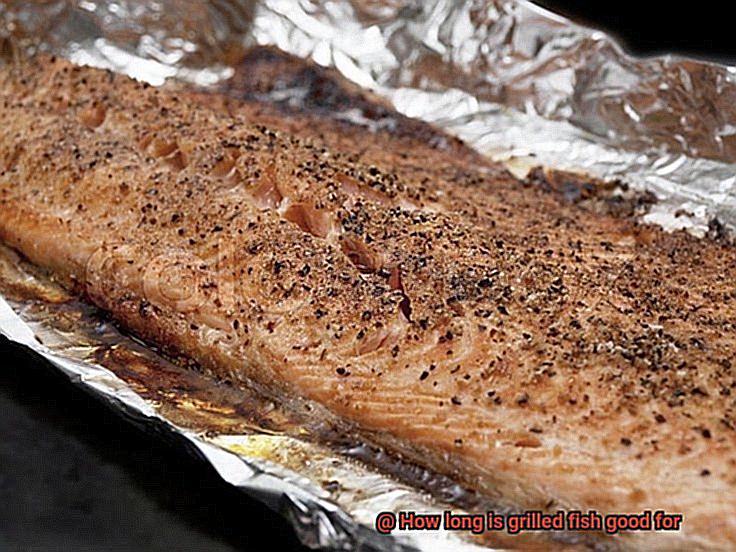Do you love indulging in some grilled fish for dinner? If you’re like me, you might have some leftovers that are calling your name. But before you dig in, it’s important to know how long grilled fish is good for. Improper storage and handling can lead to unwanted health risks, so let’s dive into the nitty-gritty of seafood safety.
First things first: cooked food has a limited shelf life, and grilled fish is no exception. While cooking does kill off harmful bacteria, they can still multiply if not stored properly. So, how long can you safely store grilled fish? Well, it depends on several factors such as the storage temperature, type of fish, and whether it was previously frozen.
Don’t worry – we’ll go through each factor in detail so that you can enjoy your grilled fish without any worries. We want to make sure that every bite of your meal is delicious and safe to consume. So let’s get started on uncovering the best practices for storing and consuming grilled fish.
Contents
Factors that Determine How Long Grilled Fish Is Good For
Well, the shelf life of grilled fish depends on several factors, and we will discuss each of them in detail.
Firstly, the type of fish you use plays a crucial role in determining the shelf life. Fatty fish like salmon or mackerel tend to spoil faster than leaner fish like cod or tilapia. So, it’s important to keep in mind that oily fish won’t last as long as leaner fish. Therefore, it’s advisable to eat fatty fish within two days and leaner ones within three days.
Secondly, the cooking method used for grilling can also determine how long the fish will last. Grilling at high temperatures for a short period can help prolong the shelf life compared to grilling at lower temperatures for longer periods. High-temperature grilling helps kill bacteria that cause spoilage and can extend the shelf life by an additional day.
Thirdly, proper storage conditions are crucial for prolonging the shelf life of grilled fish. Fish should be stored in airtight containers or wrapped tightly in plastic wrap to prevent air from reaching it, which can cause spoilage. Fish stored in the freezer can last up to six months if wrapped tightly and labeled with the date of freezing.
Fourthly, the freshness of the fish before grilling is a significant factor. If the fish is not fresh when it’s grilled, it won’t last as long as fresh fish. It’s advisable to grill fresh fish on the same day of purchase if possible.
Lastly, temperature is essential when storing grilled fish. It should be kept at a temperature below 40 degrees Fahrenheit to prevent bacterial growth and spoilage. Fish left at room temperature for more than two hours should be discarded.
Type of Fish
Let’s dive into some factors that impact the shelf life of your fish.
Firstly, the fat content of the fish plays a crucial role. Oily fish like salmon, mackerel, and sardines tend to spoil faster than leaner fish like cod or tilapia. The fats in oily fish are more prone to oxidation, which leads to rancidity and spoilage. Therefore, if you’re grilling fatty fish, it’s best to consume it within a day or two of cooking.
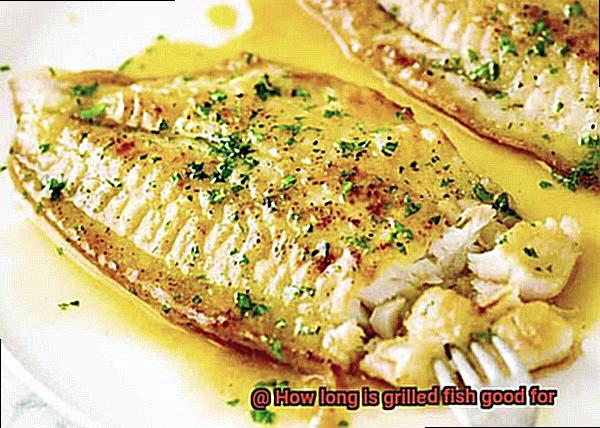
Another significant factor is whether the fish has been previously frozen. Fresh, unfrozen fish generally has a shorter shelf life than frozen fish that has been properly thawed. Freezing helps preserve the quality and freshness of the fish by slowing down bacterial growth. So if you’re not sure when you’ll be grilling your fish, consider purchasing frozen fillets and thawing them correctly before cooking.
Lastly, different types of fish require unique considerations. Some types of fish, such as tuna and swordfish, are more prone to histamine formation than others. Histamine is a toxin that can cause food poisoning if not stored or cooked properly. If you’re grilling these types of fish, make sure to store them at the right temperature and cook them thoroughly.
To ensure your grilled fish stays fresh and safe to eat for as long as possible, follow these tips:
- Choose the right type of fish for grilling
- Store your fish properly at the right temperature
- Follow proper cooking techniques
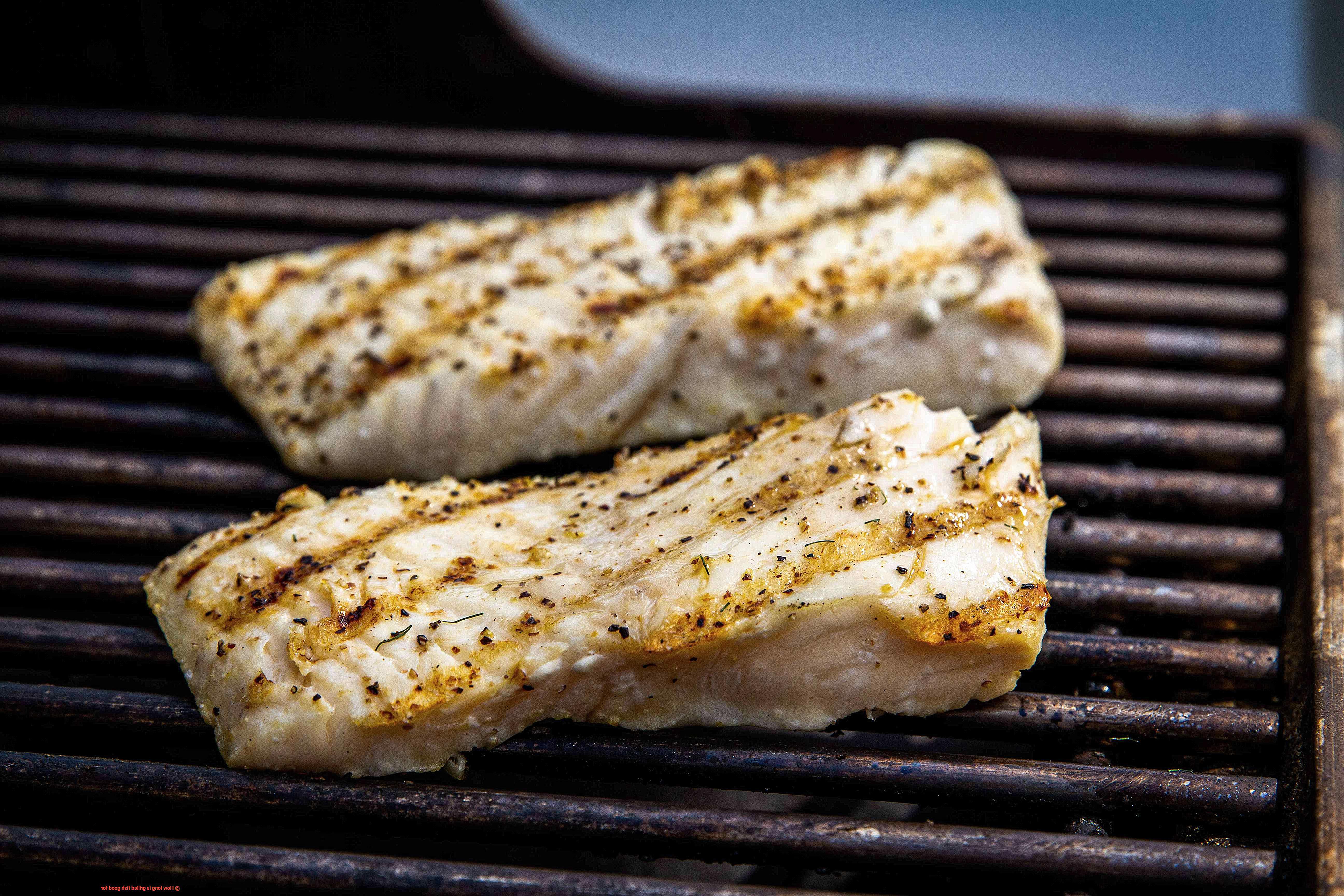
By doing so, you’ll be able to enjoy your grilled fish for several days without worrying about spoilage or food poisoning.
Method of Grilling
Grilling fish is one of the best methods for cooking seafood, and it’s not just because it’s a healthier option. Grilling allows the natural flavors of the fish to shine through while also giving it a subtle smoky taste that can’t be replicated by any other cooking method.
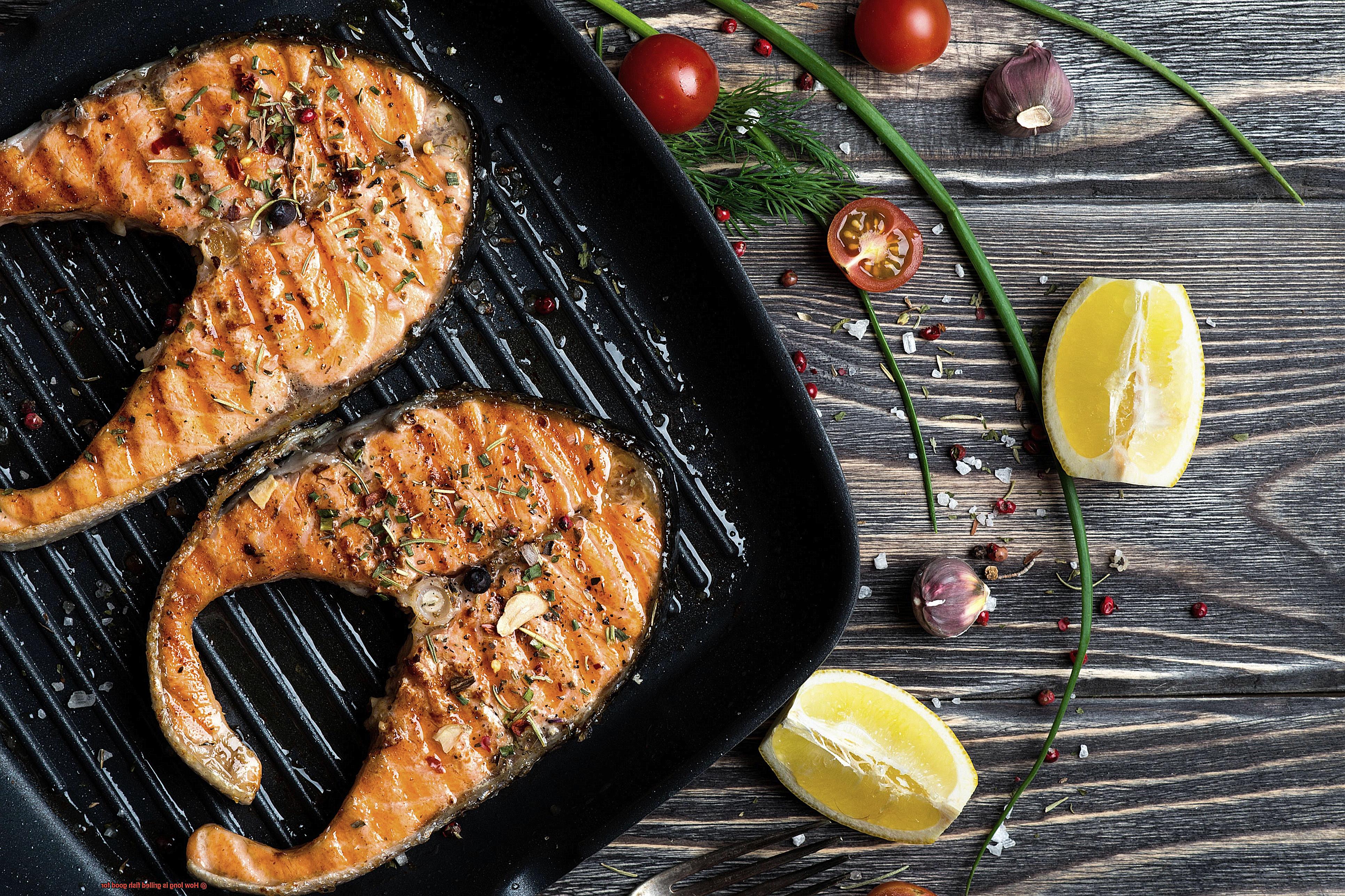
To get started, it’s important to prepare your grill properly. Clean the grill grates thoroughly and lightly oil them to prevent the fish from sticking. Preheat the grill to a medium-high temperature (around 400-450 degrees Fahrenheit) to ensure even heat distribution.
Selecting the right type of fish is crucial for successful grilling. Firm and meaty varieties like salmon, swordfish, and tuna are great options because they can withstand the heat of the grill without falling apart. Delicate fish like sole or flounder, on the other hand, may not fare as well.
Before grilling, season your fish with your preferred spices or marinade. Place it skin-side down on the grill and cook for about 3-4 minutes. Then, use a spatula to carefully flip it over and cook for an additional 3-4 minutes until fully cooked.
When checking for doneness, look for opaque flesh that easily flakes apart with a fork, an internal temperature of at least 145 degrees Fahrenheit, and no translucent areas in the thickest part of the fish. These signs indicate that your grilled fish is cooked to perfection.
After grilling, store your fish in an airtight container in the refrigerator at a temperature below 40 degrees Fahrenheit for up to three days. Reheating your grilled fish is easy too. Just use either a microwave or oven set at 145 degrees Fahrenheit until heated through.
Storing Grilled Fish in the Refrigerator
Grilled fish is not only delicious but also a great source of nutrition, making it an excellent addition to any diet. However, what do you do with the leftovers? As an expert on storing grilled fish in the refrigerator, I am here to help you enjoy your grilled fish for up to three days without worrying about foodborne illnesses.
First and foremost, it is essential to let the grilled fish cool down before storing it in the fridge. This simple step prevents bacterial growth and helps keep the fish fresh for a longer period. Once cooled, store it in an airtight container or wrap it tightly in plastic wrap or foil.
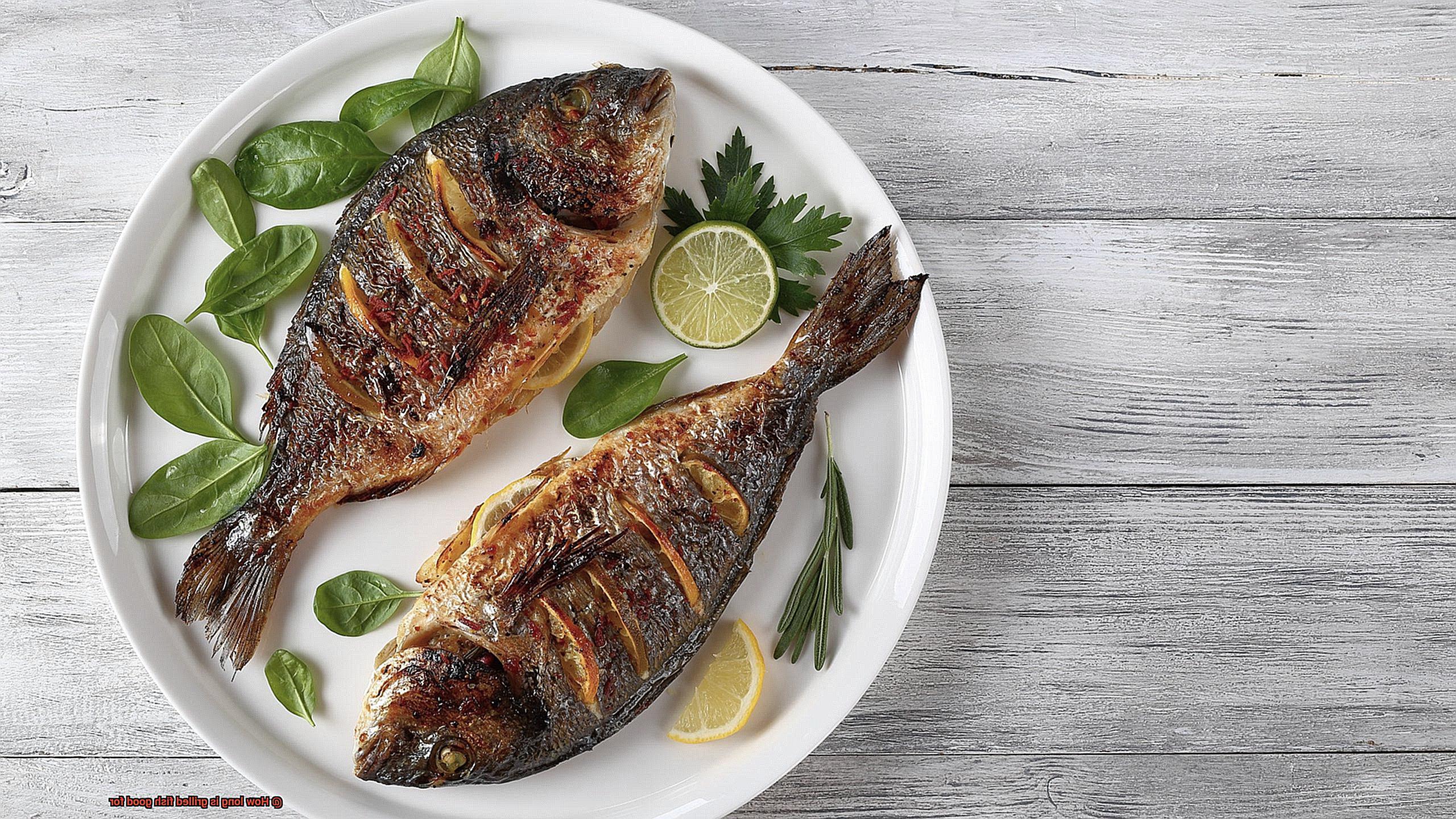
It is important to store the grilled fish on the bottom shelf of your fridge. This is because the bottom shelf is the coldest part of the fridge and maintains the temperature of the fish. Additionally, it prevents any juices from leaking onto other foods, which can cause cross-contamination.
When reheating grilled fish, ensure that it is thoroughly heated to kill any bacteria that may have grown while stored in the fridge. The best way to reheat grilled fish is by using an oven or stove top until it reaches an internal temperature of 165°F.
Storing Grilled Fish in the Freezer
Fear not, as storing grilled fish in the freezer is an easy and effective way to keep it fresh for up to three months. However, it is important to know the proper steps to prevent freezer burn and maintain its delicious flavor and texture.
Firstly, it’s crucial to cool your grilled fish completely before freezing it. You can either let it cool down at room temperature for about an hour or place it in the refrigerator for a few hours. Once cooled, wrap it tightly in plastic wrap or aluminum foil to protect it from freezer burn.
After wrapping your fish, store it in a freezer-safe container or bag. Be sure to remove any excess air from the packaging to prevent freezer burn from ruining your meal. Don’t forget to label the packaging with the date of freezing so you can keep track of how long it’s been frozen. Remember, for best quality, consume your frozen fish within three months.
When you’re ready to enjoy your grilled fish, make sure to thaw it properly. The best way to do this is by placing it in the refrigerator overnight or under cold running water. Avoid microwaving as this can cause your fish to become rubbery and lose its delicious flavor.
When you’re finally ready to reheat your grilled fish, heat up a pan with a little bit of oil or butter over medium heat until heated through. This will help maintain its texture and taste.
To recap:
- Cool your grilled fish completely before wrapping and storing in a freezer-safe container
- Label the packaging with the date of freezing and consume within three months
- Thaw your frozen fish properly before reheating
- Reheat your grilled fish on a pan with a little bit of oil or butter over medium heat
General Rule of Thumb for Consuming Cooked Fish
If so, then it is crucial to keep in mind some general rules of thumb to ensure that the meal is safe and enjoyable. It all starts with cooking the fish thoroughly to an internal temperature of at least 145°F (63°C), which will kill any harmful bacteria or parasites that could cause foodborne illnesses. So, make sure to use a thermometer to check the temperature of your grilled fish.
Once the fish is cooked, it’s best to consume it immediately or within a day or two if stored properly in the refrigerator. However, several factors can impact the shelf life of grilled fish such as the type of fish, cooking method, and storage conditions. For example, fatty fish like salmon tend to spoil faster than leaner fish like tilapia due to their higher oil content. Grilling fish at high temperatures for an extended period can cause it to dry out and become tough, reducing its shelf life.
To maximize the shelf life of grilled fish, store it in an airtight container in the refrigerator at a temperature between 32°F and 38°F (0°C and 3.3°C). This will help maintain its freshness for a longer period. Also, consume any leftover grilled fish within 3-4 days to prevent foodborne illnesses.
In summary, here are some general rules of thumb for consuming cooked fish:
- Cook the fish thoroughly to an internal temperature of at least 145°F (63°C).
- Consume it immediately or within a day or two if stored properly in the refrigerator.
- Consider the type of fish, cooking method, and storage conditions to determine its shelf life.
- Store it in an airtight container in the refrigerator at a temperature between 32°F and 38°F (0°C and 3.3°C) to maximize its shelf life.
- Consume any leftover grilled fish within 3-4 days to prevent foodborne illnesses.
Oily Fish vs Lean Fish
Grilling fish is not only a healthy option but also a delicious one. However, when it comes to storing grilled fish, understanding the differences between oily fish and lean fish is crucial. As an expert on this topic, I have researched and compiled important information to help you make informed decisions about grilling and storing fish.
Oily fish, such as salmon, mackerel, and trout, have a higher fat content than lean fish like tilapia, cod, or haddock. This means that they spoil faster than their lean counterparts. Hence, it’s best to consume oily fish within 24 hours of cooking to ensure freshness and quality. On the other hand, lean fish can last up to three days in the fridge if stored correctly in an airtight container.
It’s essential to note that refrigeration can affect the texture and flavor of grilled fish. Therefore, it’s recommended to consume grilled fish immediately after cooking to maintain its original taste and texture. However, if you need to store it for later consumption, make sure to store it properly in an airtight container.
If you want to extend the shelf life of grilled fish even further, freezing is an excellent option. Oily fish can be frozen for up to three months, while lean fish can last up to six months in the freezer. To ensure maximum freshness and quality, wrap the grilled fish tightly in plastic wrap or aluminum foil before placing it in an airtight container or freezer bag.
To summarize, here are the key points:
- Oily fish spoils faster than lean fish.
- Oily fish should be consumed within 24 hours of cooking.
- Lean fish can last up to three days if stored correctly in the fridge.
- Grilled fish should be consumed immediately after cooking for optimal taste and texture.
- Oily fish can be frozen for up to three months while lean fish can last up to six months when frozen.
High-Temperature Grilling vs Low-Temperature Grilling
High-temperature grilling and low-temperature grilling are two of the most popular methods, each with its unique benefits.
When it comes to thicker cuts of fish like salmon, swordfish, and tuna, high-temperature grilling is the way to go. With this method, you cook your fish at around 400-450°F, which quickly sears the exterior, creating a deliciously crispy crust while locking in moisture to keep the interior juicy and flavorful. The high heat helps to sear the fish quickly, creating a crispy exterior and locking in the juices, resulting in a moist and flavorful interior.
However, for delicate fish like trout, tilapia, and cod, low-temperature grilling is the better option. By cooking your fish at lower temperatures (around 250-300°F), you ensure that your fish is evenly cooked throughout without drying it out or overcooking it. The slow cooking process helps retain the natural flavors of the fish while ensuring it remains moist and tender.
Now that you know how to grill your fish to perfection let’s talk about how long you can store it. If you’ve used high-temperature grilling, your fish can last up to four days in the fridge. However, make sure to store it in an airtight container or wrap it tightly in plastic wrap to protect it from air and moisture. Alternatively, if you have left your fish out at room temperature for more than two hours or haven’t stored it correctly, discard it.
Similarly, low-temperature grilled fish can be stored in the refrigerator for up to four days but should be consumed within two days for optimal freshness. Once again, make sure to store it correctly to prevent contamination.
Also Read: Can You Cook on a Traeger without Smoke?
Conclusion
In summary, grilled fish is a delectable and nutritious meal that can satisfy anyone’s taste buds. However, it’s critical to understand how long grilled fish remains safe for consumption to avoid potential health hazards caused by improper handling and storage. The longevity of grilled fish depends on various factors such as the type of fish, cooking technique, and storage conditions.
Fatty fish like salmon spoil faster than leaner options such as tilapia due to their high-fat content. High-temperature grilling can help extend the shelf life compared to low-temperature grilling. Storing your cooked fish in an airtight container or wrapping it tightly in plastic wrap will prevent air from reaching the fish, which can cause spoilage.
Allowing your grilled fish to cool before storing it in the fridge or freezer and reheating it thoroughly before eating are essential steps to take. Following these guidelines ensures that you relish your grilled fish without any concerns about spoilage or food poisoning.
Whether you prefer high-temperature or low-temperature grilling, selecting the right type of fish for your recipe, storing it correctly, and consuming it within the recommended timeframe are crucial.

